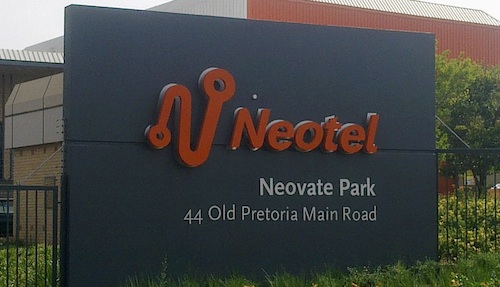
Telecommunications operator Neotel will launch its first prepaid services in the next four to six weeks as it attempts to lift its market share among retail consumers.
The operator has fewer than 50 000 customers on its wireless network.
“We are tying up the last set of operational issues ahead of launching prepaid services,” says Neotel CEO Ajay Pandey. He declines to discuss tariffs, but says its prices “will be competitive”.
“The [prepaid] market is different and will look at value for money,” he says.
Neotel plans to have 300 wireless base stations by the end of the year, covering SA’s major urban centres and some of the country’s townships, including Alexandra in Johannesburg.
Its network is based on CDMA, a rival technology to the GSM system used by the mobile operators.
The company has tied up agreements with “two or three” distributors, which will sell its starter packs. Neotel says the company will disclose the names of its partners closer to the launch date.
It already has agreements with several companies, including PostNet and Altech Autopage Cellular, which sell its post-paid offerings. The company also has two retail stores of its own, one in Johannesburg (at Cedar Square in Fourways) and the other in Cape Town (at N1 City), and will open similar outlets in Pretoria and Durban soon.

At the same time, it is stepping up its roll-out of CDMA base stations, with East London, Port Elizabeth, Pietermaritzburg, Stellenbosch and Paarl set to get coverage this year. The company already covers parts of Gauteng, Cape Town and Durban.
Unlike mobile starter packs, Neotel prepaid customers won’t need a Sim card. Instead, they’ll punch in a number on their phones to redeem credit over the air.
Though Neotel operates a wireless network, its prepaid offerings are unlikely to compete directly with the mobile operators’ products. Given that Neotel’s network is designed mainly for fixed-wireless applications, rather than mobile, it’s more likely to pose a challenge to Telkom’s prepaid solutions.
At the same time as launching prepaid offerings, Neotel is moving its higher-end retail customers, those who use a lot of data, off its CDMA network and onto WiMax. Pandey says WiMax is better suited to customers who require broadband Internet access. There will be no cost implications for users who are upgraded to WiMax.
WiMax, Pandey says, is a better alternative to the broadband digital subscriber lines offered by Telkom. The CDMA network will be used mainly for providing voice services and “low-end data connectivity”.
Several thousand CDMA customers will be migrated to WiMax in 2010. “If we are in a position to give them fibre-based connectivity, we’d love to do that, but we now know there is a good percentage who can be graduated to WiMax,” Pandey says.
Commenting on the recent fixed-line bandwidth price war that has broken out between Internet service providers such as Afrihost and MWeb, Pandey says he doesn’t believe Neotel needs to respond by cutting its prices.
“I’m not in the game of tit for tat,” he says. “I’m more interested in pulling my customers up the value chain, which is why I said high-end users are being pulled up to WiMax and why enterprise customers are being graduated into the data centre and into managed services. I’m not fighting in the space where 10 000 extra subscribers will make or break my story.”
Pandey says Neotel has played a critical role in bringing about the broadband price war that has erupted, especially by landing the Seacom undersea cable in SA. — Duncan McLeod, TechCentral
- Subscribe to our free daily newsletter
- Follow us on Twitter or on Facebook




